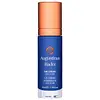What's inside
What's inside
 Key Ingredients
Key Ingredients

 Benefits
Benefits

 Concerns
Concerns

 Ingredients Side-by-side
Ingredients Side-by-side

Water
Skin ConditioningCaprylic/Capric Triglyceride
MaskingPentylene Glycol
Skin ConditioningPropylene Glycol
HumectantHydrogenated Phosphatidylcholine
EmulsifyingGlycerin
HumectantSorbitol
HumectantTocopheryl Acetate
AntioxidantButyrospermum Parkii Butter
Skin ConditioningXanthan Gum
EmulsifyingButylene Glycol
HumectantPanthenol
Skin ConditioningSodium Carbomer
Emulsion StabilisingAloe Barbadensis Leaf Juice
Skin ConditioningAlcohol
AntimicrobialHydrolyzed Rice Protein
Skin ConditioningSqualane
EmollientHelianthus Annuus Seed Oil
EmollientPhenoxyethanol
PreservativeSodium Hydroxide
BufferingCarbomer
Emulsion StabilisingLecithin
EmollientCholesterol
EmollientHydrogenated Lecithin
EmulsifyingAscorbyl Palmitate
AntioxidantCeramide NP
Skin ConditioningGlycine Soja Protein
EmulsifyingSuperoxide Dismutase
AntioxidantCitric Acid
BufferingDextran
Palmitoyl Tripeptide-8
Skin ConditioningAlanyl Glutamine
HumectantArginine
MaskingCeramide Ng
Skin ConditioningGlycine
BufferingLysine
Skin ConditioningOleic Acid
EmollientPalmitic Acid
EmollientPhenylalanine
MaskingProline
Skin ConditioningScenedesmus Rubescens Extract
Skin ConditioningAscorbic Acid
AntioxidantRetinyl Palmitate
Skin ConditioningSodium Benzoate
MaskingPotassium Sorbate
PreservativeEthylhexylglycerin
Skin ConditioningSodium Dextran Sulfate
Gel FormingBetula Alba Oil
MaskingDisodium EDTA
Oligopeptide-177
Sodium Ascorbate
AntioxidantTocopherol
AntioxidantWater, Caprylic/Capric Triglyceride, Pentylene Glycol, Propylene Glycol, Hydrogenated Phosphatidylcholine, Glycerin, Sorbitol, Tocopheryl Acetate, Butyrospermum Parkii Butter, Xanthan Gum, Butylene Glycol, Panthenol, Sodium Carbomer, Aloe Barbadensis Leaf Juice, Alcohol, Hydrolyzed Rice Protein, Squalane, Helianthus Annuus Seed Oil, Phenoxyethanol, Sodium Hydroxide, Carbomer, Lecithin, Cholesterol, Hydrogenated Lecithin, Ascorbyl Palmitate, Ceramide NP, Glycine Soja Protein, Superoxide Dismutase, Citric Acid, Dextran, Palmitoyl Tripeptide-8, Alanyl Glutamine, Arginine, Ceramide Ng, Glycine, Lysine, Oleic Acid, Palmitic Acid, Phenylalanine, Proline, Scenedesmus Rubescens Extract, Ascorbic Acid, Retinyl Palmitate, Sodium Benzoate, Potassium Sorbate, Ethylhexylglycerin, Sodium Dextran Sulfate, Betula Alba Oil, Disodium EDTA, Oligopeptide-177, Sodium Ascorbate, Tocopherol
Water
Skin ConditioningCyclopentasiloxane
EmollientDimethicone
EmollientCetearyl Alcohol
EmollientButylene Glycol
HumectantCaprylic/Capric Triglyceride
MaskingSodium Acrylate/Sodium Acryloyldimethyl Taurate Copolymer
Emulsion StabilisingSodium Hyaluronate
HumectantChondrus Crispus Extract
Skin ConditioningCodium Tomentosum Extract
Skin ProtectingHydrolyzed Collagen
EmollientIsohexadecane
EmollientGlyceryl Behenate
EmollientDimethicone Crosspolymer-3
Skin ConditioningCeteareth-20
CleansingXanthan Gum
EmulsifyingPolysorbate 80
EmulsifyingPhenoxyethanol
PreservativeEthylhexylglycerin
Skin ConditioningWater, Cyclopentasiloxane, Dimethicone, Cetearyl Alcohol, Butylene Glycol, Caprylic/Capric Triglyceride, Sodium Acrylate/Sodium Acryloyldimethyl Taurate Copolymer, Sodium Hyaluronate, Chondrus Crispus Extract, Codium Tomentosum Extract, Hydrolyzed Collagen, Isohexadecane, Glyceryl Behenate, Dimethicone Crosspolymer-3, Ceteareth-20, Xanthan Gum, Polysorbate 80, Phenoxyethanol, Ethylhexylglycerin
Ingredients Explained
These ingredients are found in both products.
Ingredients higher up in an ingredient list are typically present in a larger amount.
Butylene Glycol (or BG) is used within cosmetic products for a few different reasons:
Overall, Butylene Glycol is a safe and well-rounded ingredient that works well with other ingredients.
Though this ingredient works well with most skin types, some people with sensitive skin may experience a reaction such as allergic rashes, closed comedones, or itchiness.
Learn more about Butylene GlycolThis ingredient is an emollient, solvent, and texture enhancer. It is considered a skin-softener by helping the skin prevent moisture loss.
It helps thicken a product's formula and makes it easier to spread by dissolving clumping compounds.
Caprylic Triglyceride is made by combining glycerin with coconut oil, forming a clear liquid.
While there is an assumption Caprylic Triglyceride can clog pores due to it being derived from coconut oil, there is no research supporting this.
Learn more about Caprylic/Capric TriglycerideEthylhexylglycerin (we can't pronounce this either) is commonly used as a preservative and skin softener. It is derived from glyceryl.
You might see Ethylhexylglycerin often paired with other preservatives such as phenoxyethanol. Ethylhexylglycerin has been found to increase the effectiveness of these other preservatives.
Phenoxyethanol is a preservative that has germicide, antimicrobial, and aromatic properties. Studies show that phenoxyethanol can prevent microbial growth. By itself, it has a scent that is similar to that of a rose.
It's often used in formulations along with Caprylyl Glycol to preserve the shelf life of products.
Water. It's the most common cosmetic ingredient of all. You'll usually see it at the top of ingredient lists, meaning that it makes up the largest part of the product.
So why is it so popular? Water most often acts as a solvent - this means that it helps dissolve other ingredients into the formulation.
You'll also recognize water as that liquid we all need to stay alive. If you see this, drink a glass of water. Stay hydrated!
Learn more about WaterXanthan gum is used as a stabilizer and thickener within cosmetic products. It helps give products a sticky, thick feeling - preventing them from being too runny.
On the technical side of things, xanthan gum is a polysaccharide - a combination consisting of multiple sugar molecules bonded together.
Xanthan gum is a pretty common and great ingredient. It is a natural, non-toxic, non-irritating ingredient that is also commonly used in food products.
Learn more about Xanthan Gum